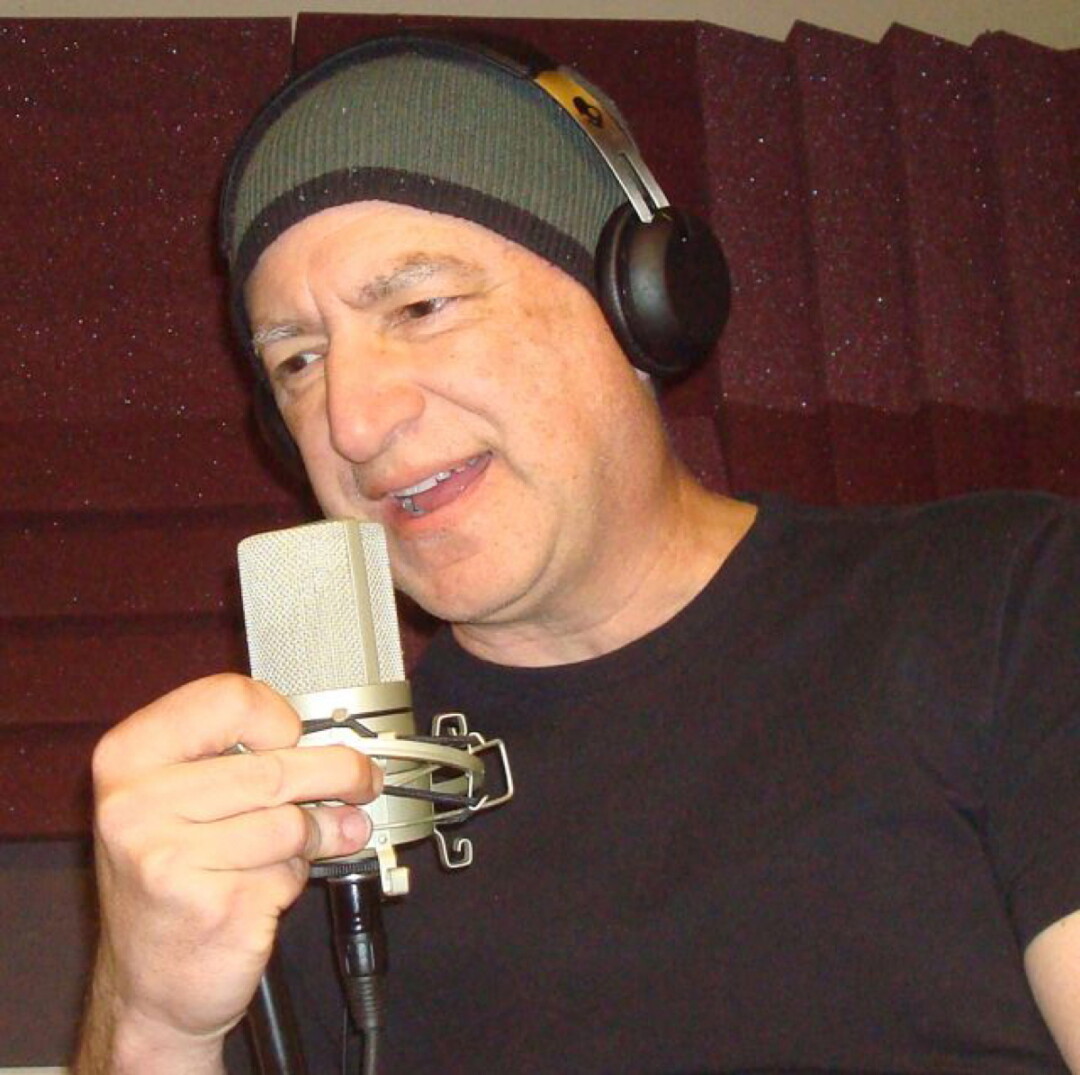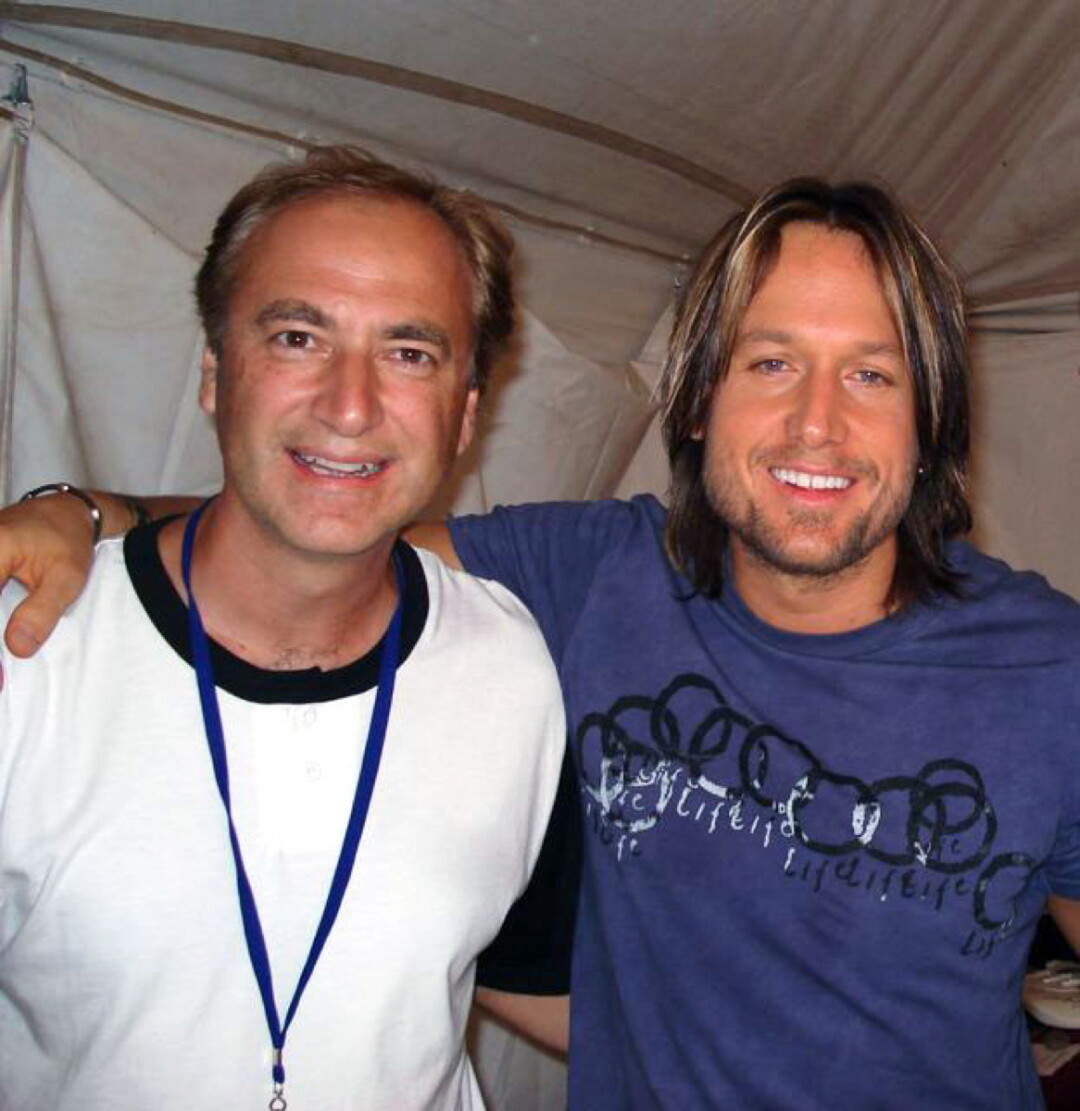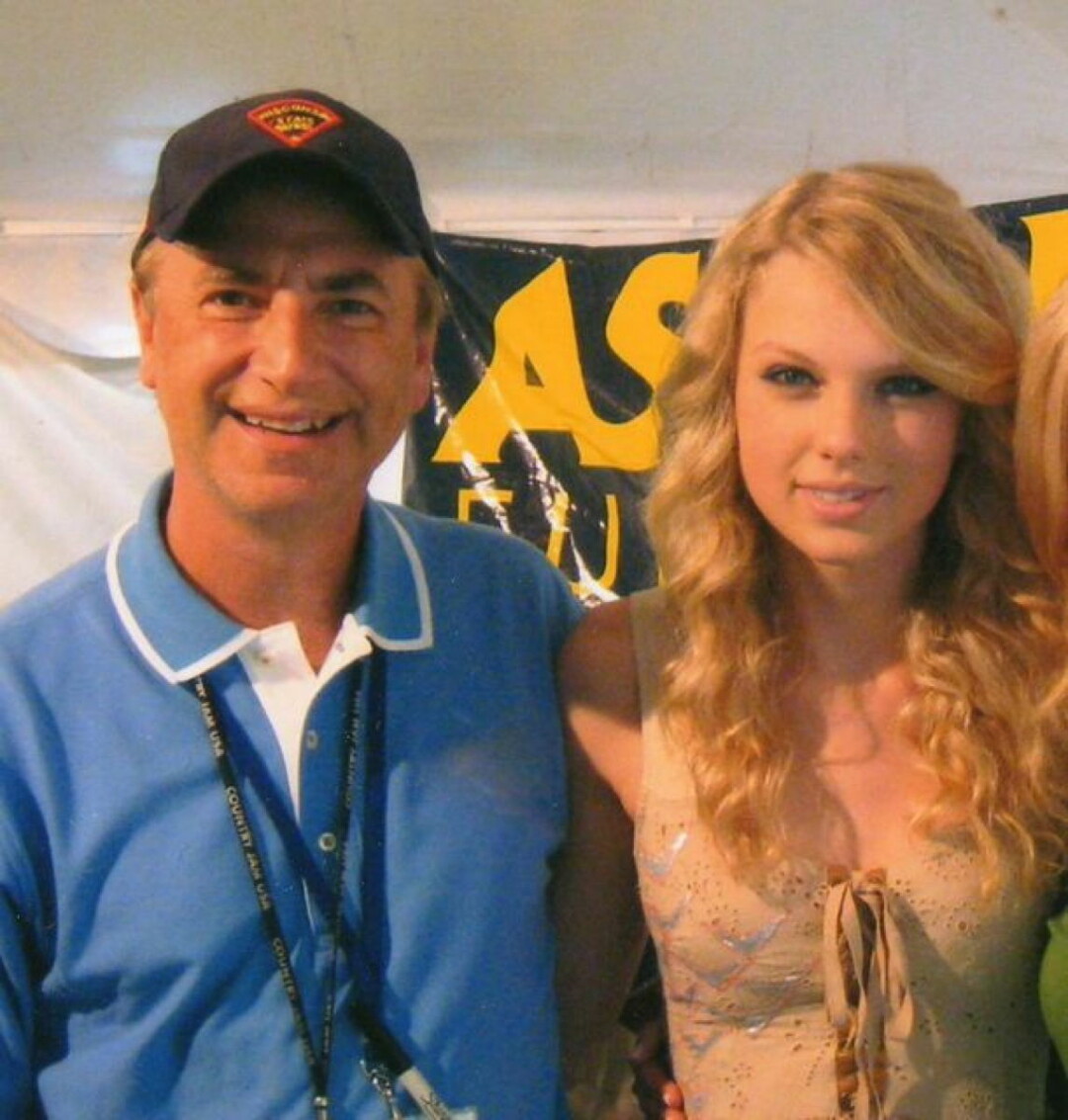Radio Silence: Local legend George House steps away from the mic – no, for real this time

“Nobody believes me that I can stay out of radio,” declares George House, one of the Chippewa Valley’s most well-known and highly decorated broadcasters. It’s not a surprise that some fans might have a hard time believing that House is really off the airwaves for good: We tried to step away from the microphone once before (in 2010).
“The reason I lasted so long as an air personality was my ability to connect, communicate, and entertain in a ‘one-on-one’ manner: meaning the approach is to envision that I’m only talking to one singular person, friend to friend.” – longtime Eau Claire radio DJ George House
But at the end of December, House retired – for good, he swears – after a nearly 40-year career in the business, almost all of it in the Chippewa Valley. Perhaps best known for the 22 years he spent as morning show host on WAXX 104.5, House got his start as a teenager working part time at WIAL-FM (then a “beautiful music” station, now “Today’s Variety” I-94). After a few years at a station in Michigan, House came back to the Valley, where he teamed up with John Murphy at WAYY-AM and then WAXX, where he won some of the biggest awards in the business with three different morning show partners: Murphy, Tammy Phillips, and Katie Bright.
Eventually, House tired of the pressure (he was also the station’s program director) and shifted gears in 2010. He opened a home recording studio, but was lured back as a part-time morning DJ on BOB FM (99.9). After two years, he became morning host at I-94 in 2012. For the past year, he also served as operations manager for the six local stations owned by Midwest Family Broadcasting. The promotion came at the same time his wife, Diane, a Lutheran pastor, got the chance to serve two churches in rural Cumberland, more than 70 miles from Eau Claire. The couple moved there, and after a year of 80-minute commutes, House decided to officially hang up his broadcasting hat. “It’s time to write a new chapter,” he explains – and he means that literally: He’s working on a book about his radio career, titled The Spirit of Radio, while also looking forward to helping bands cut demos in his home studio.
Volume One talked to House about the glamorous – and not-so-glamorous – life of a mid-market radio DJ.
Volume One: How did radio become a career?
George House: While working weekends on WIAL I became friends with the announcers on WEAQ and constantly pestered them to bug the program director to give me a chance to be a DJ. At the time, WEAQ was the big AM Top 40 station in Eau Claire, the station I loved listening to growing up. The problem was I sucked and the (program director) didn’t take me seriously. I finally wore him down and on a Sunday morning in 1979 we had an opening. He gave me my shot at being a live DJ. I still sucked, but with coaching I continued to get better. They eventually gave me more meaningful air hours as I improved, and I was on my way. I was only 17 at the time and still a junior at North (High School). The reason radio became a career is that I loved being a jock – the term we use for live disc jockey – and playing rock and roll and get paid!

Listeners might assume that being on the radio is pretty glamorous: You’re something of a local celebrity, you get to meet big-time musicians, etc. What are the things about being in radio that the audience doesn’t understand?
People don’t realize we wear multiple hats, we’re not just on the air for a few hours and then go home. We’re program directors, promotion directors, copy directors, and we cut countless commercials after our airshifts. In addition, after the normal workday is done, we have evening and weekend promotions, events, and live remotes. Plus now we do Facebook endorsements and cover other social media needs. We carry out the business of the radio station.
That being said, what were a few of the “I can’t believe this is happening” moments you had in the business, whether involving celebrities or other people?
I love doing interviews, so having met and interviewed the biggest names in the industry like Taylor Swift, Keith Urban, Rick Springfield, Garth Brooks, Carrie Underwood, Willie Nelson, Shania Twain – and dozens more – has been very fun and rewarding. My heart breaks when somebody I’ve interviewed like Glen Campbell passes away.
Did you ever have a desire to go to a bigger market?
Going to a bigger market carries risks I’ve never been willing to take. The Nielsen ratings play a huge part in longevity for an air talent in top 100 markets. The money might be very good in the short term, but one bad ratings glitch and you’re sending out résumés again. Plus being an Eau Claire native, I wanted to raise my family in the Chippewa Valley as I love western Wisconsin. Another factor is our Eau Claire radio market is very good and competitive. I’ve stayed challenged and always had room for growth.

How has the radio business changed during the past four decades? What hasn’t changed?
The biggest change was deregulation in the mid 1990s, meaning one radio group could own hundreds of radio stations across America. Thousands of announcers lost their jobs because a corporate group could streamline an operation by having fewer people do more work. Also, with the advancement of digital components, one announcer sitting in Minneapolis could cut voice tracks for multiple stations in multiple markets. The other big change has been social media, of course. The modern radio station has an interactive website and communicates with listeners daily via Facebook, Twitter, Snapchat, and Instagram. We’re no longer just voices on the radio!
The thing that hasn’t changed is the intimacy of radio. The reason I lasted so long as an air personality was my ability to connect, communicate, and entertain in a “one-on-one” manner: meaning the approach is to envision that I’m only talking to one singular person, friend to friend. That style has been in play for over a hundred years. The other thing that has never changed about terrestrial radio is that it’s free!
Do you have a favorite musical genre or artist?
I’m a crazed, die-hard Beatles fan. I also love my classic rock of the ’60s and ’70s – Pink Floyd, Led Zeppelin. During my WAXX days I came to love ’90s country, and currently I’m a huge fan of Ed Sheeran and The Weeknd.
Is there a song or artist that drove you crazy but that you had to play a lot anyway?
During the disco era the Bee Gees drove me crazy because every other song was either one of theirs or a song they wrote for someone else. Air Supply still makes me want to kill myself.
Did you get to pick a final farewell song? If not, what would you pick?
I wasn’t able to pick a farewell song because we don’t play Paul McCartney’s “Maybe I’m Amazed” on I-94. That song is the reason I fell in love with music. The song composition is great, plus Paul plays all the instruments. That’s the kind of music I always wanted to share with listeners, and learn to play as a musician. Oh yes, it’s also a mushy love song that makes me think of my wife, Diane … who by the way, got up Sunday mornings at 6am in 1979 as my high school girlfriend, and listened to my early lame attempts at trying to be a DJ. Truly amazing.


















